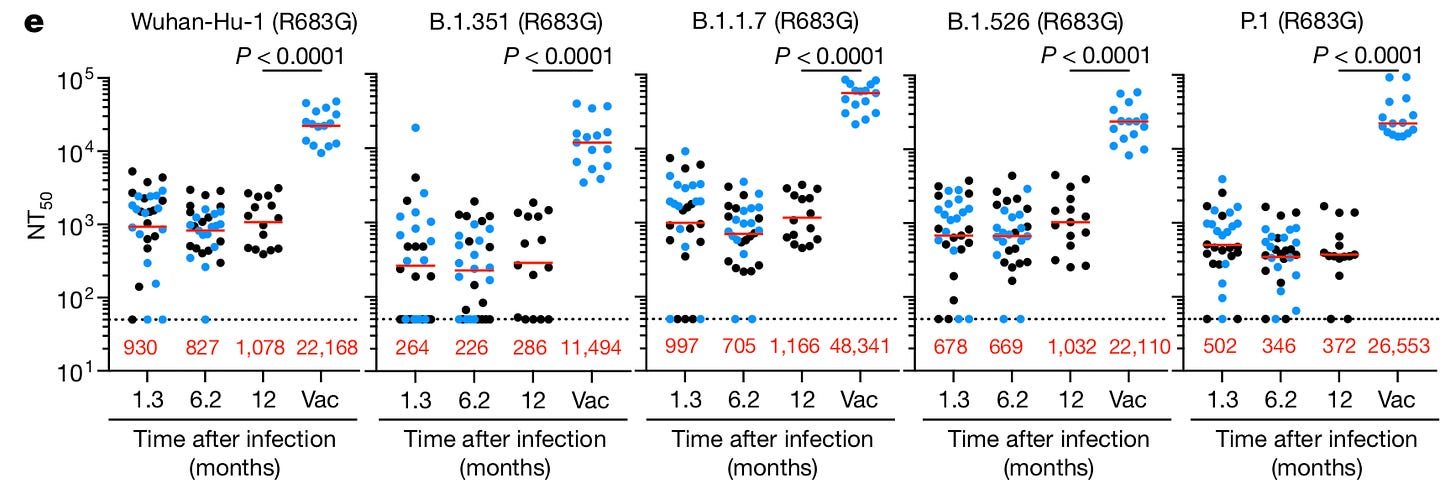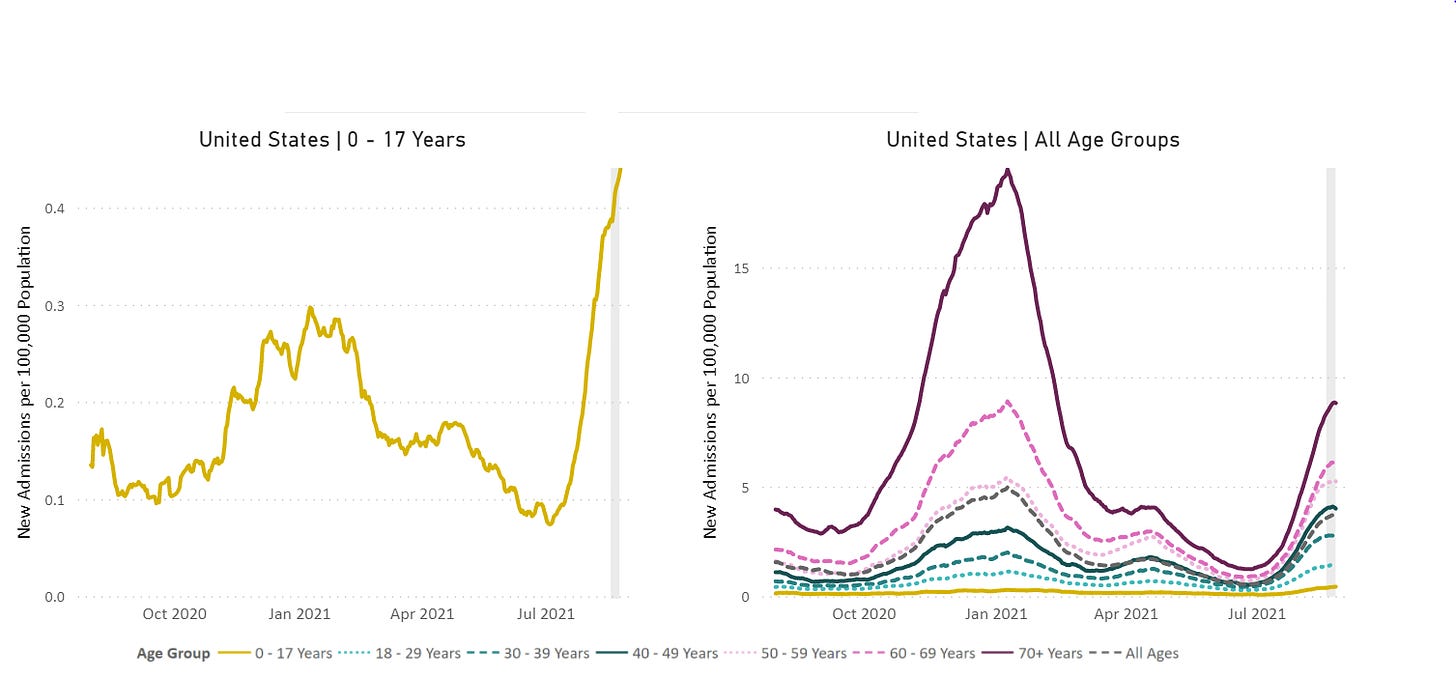Two studies have made waves this weekend: Each for different reasons…
Preprint of natural infection
I’ve gotten a lot of questions about a new preprint from Israel. In short, the authors concluded “natural immunity confers longer lasting and stronger protection against infection, symptomatic disease and hospitalization caused by the Delta variant of SARS-CoV-2, compared to the (Pfizer) two-dose vaccine-induced immunity”. Here are some high-level thoughts:
We’ve known that natural immunity can be highly protective and can last long (see my previous post here). The problem is that the response is random: Some people have protection for a long time, some people have protection for a short time, and some people don’t even get protection. We have no way to predict who will land in each category yet (Harvard is working on it). The risk of reinfection after natural infection is 2 times higher with Delta than with vaccines. Vaccines induce a pretty uniform and clean response (unless you’re immunocompromised).
If you’ve recovered from COVID19 and get the two vaccines, you have even higher protection on every metric in the immune system. We’ve seen this with many studies, but here’s a great one. Natural infection basically acts like a third dose.
I have a love-hate relationship with preprints. Like my friend text me, “Preprints are like models, they’re useful but not gospel”. One preprint doesn’t overturn the hundreds of studies that show vaccines work amazingly against hospitalization and death. This Israel preprint won’t be published in its current form. Like we say in academia, it needs “major revisions”. But even if it were, it’s not a viable public health solution. If we let this virus rage in the name of “natural protection”, we will loose about 300,000 more American souls to a preventable disease. We’ve already lost 627,000. And that’s “just” mortality. That doesn’t take into account hospital costs, long COVID19, and quality of life. Natural infection comes with lots of risk while vaccines come with very, very little.
Does Delta result in more severe disease?
This is a burning question scientists have had as it could partially explain high hospitalizations regardless of the States’ moderate vaccination rates. This could also partially explain the increase in hospitalizations among kids.
This weekend the Lancet published the largest study yet using a sample in the UK. Scientists looked at data from 43,338 COVID-19-positive patients: (8,682 had Delta and 34,656 had Alpha variant) between March 29 and May 23, 2021. They compared hospitalizations among patients infected with Delta compared to Alpha (the variant of concern first detected in the UK that ravaged the UK before Delta).
What did they find?
Delta patients were younger (median age 29 years) than Alpha patients
Delta patients had more than two times the risk of hospital admission compared to Alpha patients
Delta patients used the emergency department more than Alpha patients
This adds to the growing evidence that Delta is more severe. An early Scotland study found that the risk of hospitalization was nearly double than previous variants. An early Public Health of England technical report found this too. We also saw this in Singapore where Delta infection was associated with higher risk of oxygen requirement, ICU admission, or death.
This is where my toddler came up to me and said “No work mama, no work”. And I can’t argue with that. So, we get a short Sunday post, probably peppered with a number of typos.
I hope you’ve found some time to breathe this Sunday in the wake of this ever complex and exhausting world. Godspeed to our neighbor, Louisiana, in the wake of the Hurricane. And Godspeed to the 13 heroes we lost in Afghanistan (and thousand more service men and woman braving on in the next few days).
Love, YLE







Thank you for your tireless work—and for listening to your boss.
Yes, Godspeed